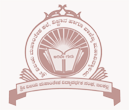Department of Chemistry
S V M Arts Science and Commerce College Ilkal
Department of Chemistry
Chemistry plays an integral role in today’s scientific endeavors. In this new and inspiring era, chemistry has gained enormous heights, glorified with immense contribution in medicine, biology, engineering, Pharmaceuticals, material sciences etc., Modern chemical research is a creative activity involving techniques across this wide range of science to actively design and synthesize molecules and materials, and determine their properties.
Department of Chemistry was established as a part of SVMVV Sangha in 1964 and it has got a excellent qualified faculties offering three year B.Sc. degree in the area of Chemistry. The founder members of the Department Shri.R.S.Patil (Former Principal), Shri.R.S.Patil(Shirabur), Shri.D.S.Kardyal , Shri.S.S.Hiredesai (demonstrator) and Shri Ramamurti (lab attender), who laid a strong foundation for the department. From 1964 to 1992 the department offered chemistry as a major and minor subject. From 1992 onwards the department offers chemistry as one of the three optional subjects as per the Karnataka University policy. Earlier the college was affiliated to Karnataka University Dharwad and later from 2010 affiliated to Rani Channamma University Belagavi. Presently the department has 4 full time faculty and 2 adhoc faculty.
The Department of chemistry has been recognized for its potential research output. Out of staff members 03 are Doctorates, one staff members pursuing Ph.D. About 60+ research articles are published in well repute high impact factor national and international journals. The staff members of our department attend national & international workshops in the field of chemistry and present their research papers. The department has 2 labs well equipped with sophisticated equipments to carry out practical.
COURSES OFFERED
OUR FACULTY
DEPARTMENTAL ACTIVITIES
- PSO1: Have sound knowledge about the fundamentals and applications of chemical and scientific theories.PSO2: Every branch of science and technology is related to chemistryPSO3: Easily access the properties of all elements discovered.PSO4: Apply appropriate techniques for the qualitative and quantitative analysis of chemicals in laboratories and in industries.PSO5: Will become familiar with the different branches of chemistry like analytical organic and physical environmental polymer and biochemistryPSO6: Helps in understanding the causes of environmental pollution and can open up new methods for environmental pollution control.PSO 7: Develops analytical skills and problem solving skills requiring application of chemical principle.PSO8: Acquires the ability to synthesis separate and characterize compounds using laboratory and instrumentation techniques.
- B.Sc. PART IAfter studying this course the students will be able toPaper I: (Inorganic chemistry)
- Understand the modern periodic table and the periodic properties like atomic and ionic size, ionization energy, electron affinity, electronegativity etc.
- Understand the behavior of the inert gases
- Be aware of defininition of oxidation reduction oxidizing agene and reducing agent
- Have basic knowledge of chemical bonding and coordination chemistry
PART II: (Organic Chemistry)
- Understand the basic principles of organic chemistry
- Understand the basic terms of chemical reactions i.e., substrate and reagents, types of reagents, electrophilic and nucleophilic reaction, homolytic and heterolytic fission and inductive effect etc.
- Understand basics of the alkenes and alkynes chemistry
- Gain information about stereoisomerism
PART III: (Physical Chemistry)
- Understand the basic principles of physical chemistry
- Know about applications of 1st law of thermodynamics
- Have thorough knowledge of electrochemistry and chemical equilibria.
- Know the importance of chemical kinetics
B.Sc. PART II
Paper I: (Inorganic Chemistry)
- Develop ability to draw the shapes of molecules
- Know about preparation and properties of p and d block elements.
- Know the principles involved in metallurgical extraction of some metals.
- Have adequate information about preparation properties and uses of some inorganic compounds
Paper II: (Organic chemistry)
- Acquire the ability to characterize the compounds using UV and IR spectroscopy.
- Understand the preparation and properties of functional groups.
- Gain knowledge about different named reactions.
- Have ability to complete the given reaction
Paper III: (Physical Chemistry)
- Have insight into principles of thermodynamics
- Know the principles of Electrochemistry
- Know the application of colloidal state.
- Have knowledge of molar refraction, dipole moment etc
B.Sc. PART III
Paper I: (Inorganic chemistry)
- Know the nature and purity of the crystal
- Have the detailed knowledge of theories of covalent and coordinate bond.
- Gain knowledge of metallurgical extraction of some heavy metals
- Know the basic principle of glass, cement, fertilizer and steel industry.
Paper II: (Organic Chemistry)
- Understand the synthesize and properties of organometallics.
- Know the basic principles of proton magnetic resonance spectroscopy.
- Have proper information about preparation and properties of heterocyclic compounds
- Know the synthetic application of acetoacetic ester and diethyl malonate.
- Understand the classification nomenclature and chemistry of carbohydrates proteins and polymers.
Paper III: (Physical Chemistry)
- Know the basics of nuclear chemistry
- Understand the principles of chemical kinetics
- Gain knowledge of thermodynamic, derivation of laws of thermodynamics
- Know the basic principles of photochemistry and EMF
- Have clear concept of atomic structure.
- Employment oriented training through Certificate Courses and Workshops
- Encouraging students to participate in Sports, NCC, NSS
- Provision of books through Departmental Library
- Endowment prizes for meritorious students
- Parent Teacher Interactions
- Medical Check Ups to students in association with Medical & Health Unit of the Society.
- Well equipped labs: 02 , Capacity: 50 students per batch in each lab
- Books in central library: 5000+
- Research lab: 01
- Chemical Store room: 01
- Department library
- Learning resources for slow and advance learners
- Model kits-01
Institutional Social Responsibility (ISR)
- Celebration of Mendel’s birthday anniversary
- Celebration of the “Kargil Vijay Diwas”
- International Tiger day celebration
- Group Discussion and Tree Plantation
- Dental Checkup Camp
- Gender Sensitization Poster Exhibitions
- International Ozone Day
8.. World Cancer Day
